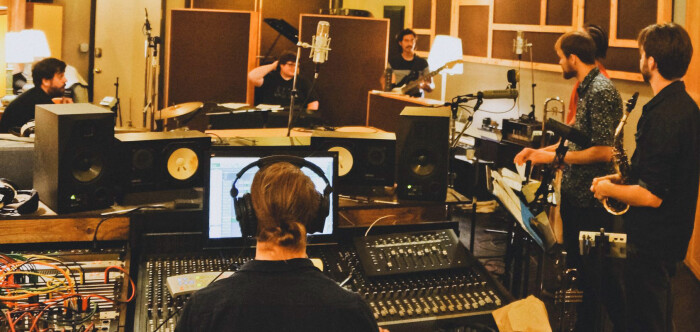Before we start another chapter of this ultimate recording guide, I decided to write this article inspired by some comments to previous articles...

Psycho-logic
Regardless of whether you have a professional or home studio, you must never forget, not for whom you work, but rather for what, or more exactly why you work. If I’m not mistaken, your goal is to get the best result for the song you are producing, right? This means everybody involved should put themselves to the service of the song, from the engineers, to the musicians, producer, songwriters, arrangers, etc. It seems pretty obvious stated like that, but we are all human and a big ego out of control can be very damaging even for the best-oiled machines in the world. And I’m sure you know egos is the one thing the art world probably doesn’t lack of…
The reason I’m bringing this up here is because being at the service of a song during a recording session often requires a change of habits to many of the people involved. But sometimes it can be very hard to get a musician who wants to stick to “his/her sound, ” or an engineer who’s done things the same way “for years, ” or even a composer/songwriter who demands “respect for his work” to accept any changes. That’s why it’s important to establish a honest and open dialog between all parties involved, so that they can arrive to a common understanding and work more closely together. This is the only way everybody will be able to give their best for the benefit of the track being produced.
Given the nature of this guide, we obviously have a tendency to look at things from the point of view of the audio engineer / music producer. When a technical-artistic decision is put into question by another person you should first try to analyze the situation to see whether egos have anything to do with it. This demands a high dose of humility because it entails recognizing and accepting your own demons when it’s your self-esteem that expresses itself rather than your technical and artistic expertise. And unfortunately I don’t have a secret recipe to share with you in this regard. Only time, experience and your past successes and failures will help you move forward on this internal battlefield. However, when the “conflict” spawns essentially from the ego of the other party, there are some tips that might help you deal with the situation.
First of all, you could simply remind that person why you are on the project. In theory, it should be a mix of confidence, your recording know-how and quality, references, your implication in the project, their interest on a more or less external point of view, and the desire to delegate the difficult task of production on a third party to be able to focus better on the artistic performance. When done with tact, this allows everybody to refocus on their own tasks and leave all other considerations in the hands of whoever is responsible for them.
Another means to convince them of the adequacy of your choices is to bring forward arguments from the audio production world. Imagine, for instance, that a guitarist doesn’t want to play another guitar under the pretext that it is at the core of “his/her sound” when the song in question asks for a different kind of guitar sound. In such cases, it might be wise to use the references card. By way of example you could cite Jimmy Page who is well-known for being a Les Paul fan, but nevertheless played the solo on Stairway to Heaven on a Telecaster. Along the same lines, you could ask the musician if he/she thinks all Clapton tracks were recorded using the same guitar, with the same amp and effects, and with the same mics and preamps. That’s obviously not the case an nevertheless, the “Clapton sound” is always there. In other words, it’s the musician who’s responsible for his/her sound, not the instrument. And this is also a great argument because it shows your confidence on the musician: His/her artistic value does not depend on the gear, but rather on his/her musical sensibility!
We could discuss many more examples, but I guess you get the idea now. To close this chapter I would like to highlight the importance of cultivating your knowledge in terms of audio production. This will not only allow you to perfect your own techniques by inspiring you to test different methods, but it will also give you arguments to justify and defend your decisions during recording sessions with other artists, if need be. And to expand your knowledge in terms of audio production, internet is definitely the tool of choice. Discovering the tricks behind mythical tracks has never been as easy as today!
Next week will have the second part of this interlude dedicated to the art of dialog within the framework of music production, where we will reverse situations and then focus on the specific case of the home studio.
Have a great weekend everybody!

